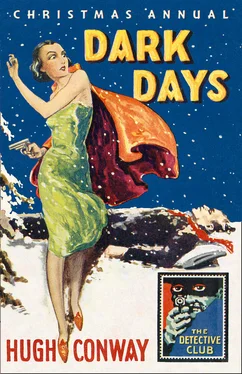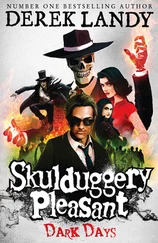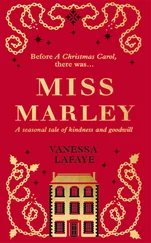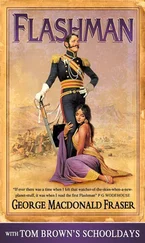Then, remembering her present helpless condition, I checked myself. I begged her to forget the words I had spoken; not to answer them now; to let me say them again in some months’ time. Let me still be her friend, and render her such service as I could.
She shook her head; she held out her hand. The first action meant the refusal of my love; the second, the acceptance of my friendship. I schooled myself to calmness, and we discussed her plans for the future.
She was lodging in a house in a quiet, respectable street near Regent’s Park. She expressed her intention of staying on here for a while.
‘But alone!’ I exclaimed.
‘Why not? What have I to fear? Still, I am open to reason, if you can suggest a better plan.’
I could suggest no other. Philippa was past twenty-one, and would at once succeed to whatever money had been her mother’s. This was enough to live upon. She had no friends, and must live somewhere. Why should she not stay on at her present lodgings? Nevertheless, I trembled as I thought of this beautiful girl all alone in London. Why could she not love me? Why could she not be my wife? It needed all my self-restraint to keep me from breaking afresh into passionate appeals.
As she would not give me the right to dispose of her future, I could do nothing more. I bade her a sad farewell, then went back to my home to conquer my unhappy love, or to suffer from its fresh inroads.
Conquer it! Such love as mine is never conquered. It is a man’s life. Philippa was never absent from my thoughts. Let my frame of mind be gay or grave Philippa was always present.
Now and then she wrote to me, but her letters told me little as to her mode of life; they were short friendly epistles, and gave me little hope.
Yet I was not quite hopeless. I felt that I had been too hasty in asking for her love so soon after her mother’s death. Let her recover from the shock, then I will try again. Three months was the time which in my own mind I resolved should elapse before I again approached her with words of love. Three months! How wearily they dragged themselves away!
Towards the end of my self-imposed term of probation I fancied that a brighter, gayer tone manifested itself in Philippa’s letters. Fool that I was! I augured well from this.
Telling myself that such love as mine must win in the end, I went to London, and once more saw Philippa. She received me kindly. Although her garb was still that of deep mourning, never, I thought, had she looked more beautiful. Not long after our first greeting did I wait before I began to plead again. She stopped me at the outset.
‘Hush,’ she said; ‘I have forgotten your former words; let us still be friends.’
‘Never!’ I cried passionately. ‘Philippa, answer me once for all, tell me you can love me!’
She looked at me compassionately. ‘How can I best answer you?’ she said, musingly. ‘The sharpest remedy is perhaps the kindest. Basil, will you understand me when I say it is too late?’
‘Too late! What can you mean? Has another—?’
The words died on my lips as Philippa, drawing a ring from the fourth finger of her left hand, showed me that it concealed a plain gold circlet. Her eyes met mine imploringly.
‘I should have told you before,’ she said softly, and bending her proud head; ‘but there were reasons—even now I am pledged to tell no one. Basil, I only show you this, because I know you will take no other answer.’
I rose without a word. The room seemed whirling around me. The only thing which was clear to my sight was that cursed gold band on the fair white hand—that symbol of possession by another! In that moment hope and all the sweetness of life seemed swept away from me.
Something in my face must have told her how her news affected me. She came to me and laid her hand upon my arm. I trembled like a leaf beneath her touch. She looked beseechingly into my face.
‘Oh, not like that!’ she cried. ‘Basil, I am not worth it. I should not have made you happy. You will forget—you will find another. If I have wronged or misled you, say you forgive me. Let me hear you, my true friend, wish me happiness.’
I strove to force my dry lips to frame some conventional phrase. In vain! Words would not come. I sank into a chair and covered my face with my hands.
The door opened suddenly, and a man entered. He may have been about forty years of age. He was tall and remarkably handsome. He was dressed with scrupulous care; but there was something written on his face which told me it was not the face of a good man. As I rose from my chair he glanced from me to Philippa with an air of suspicious enquiry.
‘Doctor North, an old friend of my mother’s and mine,’ she said with composure. ‘Mr Farmer,’ she added; and a rosy blush crept round her neck as she indicated the newcomer by the name which I felt sure was now also her own.
I bowed mechanically. I made a few disjointed remarks about the weather and kindred topics; then I shook hands with Philippa and left the house, the most miserable man in England.
Philippa married, and married secretly! How could her pride have stooped to a clandestine union? What manner of man was he who had won her? Heavens! He must be hard to please if he cared not to show his conquest to the light of day. Cur! Sneak! Coward! Villain! Stay; he may have his own reasons for concealment—reasons known to Philippa and approved of by her. Not a word against her. She is still my queen; the one woman in the world to me. What she has done is right!
I passed a sleepless night. In the morning I wrote to Philippa. I wished her all happiness—I could command my pen, if not my tongue. I said no word about the secrecy of the wedding, or the evils so often consequent to such concealment. But, with a foreboding of evil to come, I begged her to remember that we were friends; that, although I could see her no more, whenever she wanted a friend’s aid, a word would bring me to her side. I used no word of blame. I risked no expression of love or regret. No thought of my grief should jar upon the happiness which she doubtless expected to find. Farewell the one dream of my life! Farewell Philippa!
Such a passion as mine may, in these matter-of-fact, unromantic days, seem an anachronism. No matter, whether to sympathy or ridicule, I am but laying bare my true thoughts and feelings.
I would not return to my home at once. I shrank from going back to my lonely hearth and beginning to eat my heart out. I had made arrangements to stay in town for some days; so I stayed, trying by a course of what is termed gaiety to drive remembrance away. Futile effort! How many have tried the same reputed remedy without success!
Four days after my interview with Philippa, I was walking with a friend who knew everyone in town. As we passed the door of one of the most exclusive of the clubs, I saw, standing on the steps talking to other men, the man whom I knew was Philippa’s husband. His face was turned from me, so I was able to direct my friend’s attention to him.
‘Who is that man? ‘I asked.
‘That man with the gardenia in his coat is Sir Mervyn Ferrand.’
‘Who is he? What is he? What kind of a man is he?’
‘A baronet. Not very rich. Just about the usual kind of man you see on those steps. Very popular with the ladies, they tell me.’
‘Is he married?’
‘Heaven knows! I don’t. I never heard of a Lady Ferrand, although there must be several who are morally entitled to use the designation.’
And this was her husband—Philippa’s husband!
I clenched my teeth. Why had he married under a false name? Or if she knew that name by which she introduced him to me was false, why was it assumed? Why had the marriage been clandestine? Not only Sir Mervyn Ferrand, but the noblest in the land should be proud of winning Philippa! The more I thought of the matter, the more wretched I grew. The dread that she had been in some way deceived almost drove me mad. The thought of my proud, beautiful queen some day finding herself humbled to the dust by a scoundrel’s deceit was anguish. What could I do?
Читать дальше












